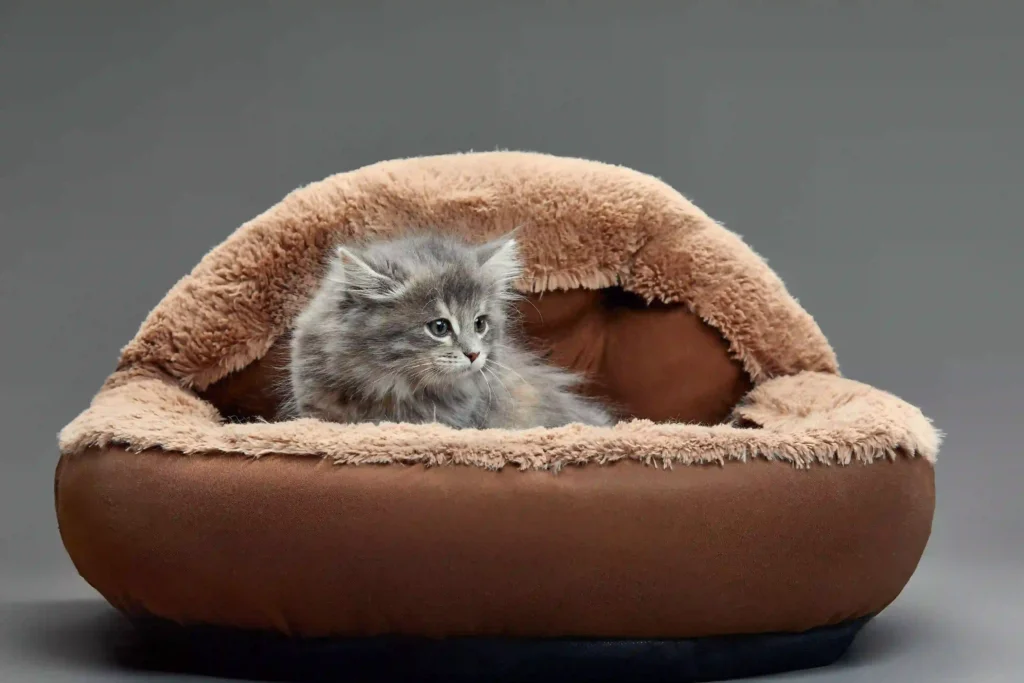Deciding to take on the adventure of adopting a new pet is a choice that involves more than just providing company—it involves a dedication to raising and looking after a different kind of animal. It’s important to make this selection carefully as you get ready to welcome a feathered or furry pet into your house and heart. This all-inclusive guide is intended to give you priceless advice and insights to help you choose the ideal pet—one that fits into your lifestyle and improves the quality of your everyday life.
Despite the immense happiness that comes with owning a pet, some responsibilities go far beyond the initial thrill. The secret to having a happy and successful pet ownership experience is to match your lifestyle and tastes with the special requirements and qualities of the possible pet. You’ll learn more about the elements that go into a healthy pet-human bond by reading this book, so you can make an informed and fulfilling choice when it comes to adding a new family member to your house.
The following sections will go into crucial factors including determining your daily schedule, analyzing the amount of space needed, and comprehending any possible allergies. When carefully considered, these factors will open the door to a deliberate selection process that will produce a match made in pet-owner paradise. Now, let’s explore the realm of ethical pet ownership and learn the steps to finding the ideal partner for your particular way of life..
Thoroughly Assess Your Lifestyle
Selecting the ideal pet is a big decision that needs to be carefully thought out, and one of the most important criteria is lifestyle.

The first and most important stage in this process is to do a full assessment of your daily schedule, your employment obligations, and the amount of time you can realistically devote to a pet. Like people, pets have a variety of needs when it comes to exercise, attention, and socialization. For example, choosing a low-maintenance pet like a cat or a fish can be a better option if you have a busy schedule and little time for other activities.
It’s important to take into account your living environment, available space, and personal preferences in addition to regular schedules. A little pet, such as a bird or hamster, may be more practical in an apartment than a huge dog, which needs lots of space to play and roam around. A dog can be a great friend if you have time for daily walks and enjoy being outside. However, a small rodent or reptile can be a better choice if you have less time for active play and want a quieter setting.
In conclusion, choosing the ideal pet requires careful consideration of your lifestyle, available space, and personal routines in addition to personal desire. Choosing a pet that fits your lifestyle is essential for a happy and long-lasting relationship, whether you go for a feathered, furry, or scaly buddy.
Consider Space Requirements
Pets can require different amounts of space due to their diversity in size and shape. Larger pets, for example, dogs could want more space to run around and play, but smaller animals, like reptiles or hamsters, might be happier in smaller living areas.

Make sure your house can suit the particular requirements of the pet you are thinking about, giving them a space that is healthy for them. Consider elements like sunshine exposure, the amount of outdoor space, and the presence of spaces set out for play and physical activity. To create a pleasant and healthy living environment, it is essential to understand the space needs of your possible pet.
Your decision-making process should take financial factors into account in addition to space and time considerations. Fees for food, medical care, grooming, and other essentials incurred by pets. The costs of caring for larger animals may be higher due to their daily needs and possible medical needs. It’s critical to plan your budget appropriately and make sure you have the money on hand to cover your pet’s needs for the duration of their life.
Evaluate Allergies and Sensitivities
Consider any allergies you or your family members may have before choosing a pet. Pet pollen may cause allergies in certain people, and some dog and cat breeds are considered to be more hypoallergenic than others. Investigate various breeds and spend time with animals to see how they affect allergies to minimize potential problems. Consider the following points:
- Hypoallergenic Breeds Look at breeds that are known to produce fewer allergies, such as some poodle varieties, Bichon Frises, or cat varieties like the Russian Blue or Sphynx.
- Interaction with Animals Give animals some time to come to a choice. To detect any allergic reactions, this may entail going to shelters, breeders, or friends who own pets.
- Allergy testing To determine particular causes, if you’re unsure about any possible allergies, think about getting tested. Making an informed choice regarding the kind of pet that would work best in your home can be aided by this.
- Grooming and Cleaning Procedures Give your pet frequent haircuts and keep your living area tidy. This includes cleaning your pet’s living space, brushing their fur, and utilizing air purifiers to reduce airborne allergens and make the whole family’s atmosphere healthier.
It’s also essential to design a pet-friendly area in your house and take steps to reduce allergens. Pet owners and their furry friends can live in healthier environments by routinely brushing, cleaning, and using air purifiers. By following these guidelines, you can make sure that your selected pet and you have a healthy relationship and that the joy of pet ownership is not overwhelmed by allergic responses.
Thoroughly Research Breeds and Species
Because every pet has a different combination of traits, personalities, and maintenance needs, doing extensive research is a crucial stage in the decision-making process.
“Research is seeing what everybody else has seen and thinking what nobody else has thought.”
Albert
Do a thorough investigation into various breeds and varieties to find one that suits your tastes and way of life. While some dogs may be more laid-back and adaptive, others may be recognized for their high activity requirements and energetic disposition. In a similar vein, small mammals, birds, and cats display a diverse array of personalities and activity levels.
Take into account your personal tastes and lifestyle circumstances in addition to learning about the general characteristics of various breeds. Do you lead a more laid-back and indoorsy lifestyle, or are you an active person who appreciates outdoor activities? Do you want a more independent companion, or are you seeking a pet that needs a lot of social interaction?
By matching your lifestyle and personal preferences with the traits of the selected pet, you raise the possibility of developing a close relationship and taking care of each other’s needs.
Acknowledge the Long-Term Commitment
Adopting a pet is a substantial, ongoing time, energy, and financial commitment. Think about how long the pet you want to get will live, and be sure you can handle the care that comes with it.

Prepare yourself for a long-term commitment, whether it’s to a dog, cat, or other companion animal. For example, dogs can live up to ten years or longer, therefore they need constant care and attention. Even into their teens or even twenties, cats can have long lives. It’s important to know how long your prospective pet will live to commit to a long-term relationship.
It’s critical to acknowledge the financial obligations that come with owning a pet in addition to the time commitment. To guarantee their well-being, pets need to receive routine veterinary treatment, vaccines, wholesome food, and other necessities. Unexpected health problems and emergencies can also occur, raising the overall cost. When making plans for your pet’s requirements, take into account things like grooming, training, and possible boarding or pet-sitting costs.
Budget for All Expenses
Beyond the original adoption or purchase price, pet ownership entails additional financial obligations. To provide your new pet with a comfortable and healthy existence, you must budget for food, veterinarian care, grooming, and other necessities.

The financial ramifications of different pets vary, therefore it’s important to take these costs into account while making your decision. Smaller pets, like fish or hamsters, typically have fewer expenses for food and medical care than larger animals, like dogs. Furthermore, take into account any unanticipated costs for emergencies or unexpected medical difficulties, stressing the significance of keeping a savings account specifically devoted to your pet’s welfare.
Additionally, it’s a good idea to look into pet insurance choices as part of your financial planning. Pet insurance can assist in covering the cost of unforeseen medical expenses and offer cash support in times of need. Find an insurance plan that fits both your budget and the unique needs of your pet by doing some research and comparing several options.
You may provide for your pet’s requirements without endangering their health or well-being by taking proactive measures to manage the financial side of pet ownership. This will create a loving and worry-free atmosphere for both you and your feathery, scaly, or furry buddy.
Visit Shelters and Reputable Breeders
Making an informed choice regarding your future pet requires visiting several facilities, regardless of whether you decide to buy from a breeder or adopt from a shelter.

To be sure a prospective pet would fit well with your lifestyle and tastes, spend time getting to know them, ask pertinent questions, and assess their personalities. Shelters are great locations to locate a wide variety of animals looking for devoted homes. Not only can you give homeless animals a second shot at life, but you can also see how they behave in a new setting by going to shelters. On the other hand, trustworthy breeders can offer insightful information on particular breeds and their attributes, assisting you in understanding the possible demands and traits of the pet you are interested in.
When you visit animal shelters, observe the energy levels and temperaments of the animals as well as any indications of illness or behavioral problems. Making an informed judgment on compatibility with your lifestyle requires knowledge of this information. Likewise, while interacting with breeders, find out about the pedigree, medical history, and socialization initiatives for the particular breed you are considering. Breeders who practice responsible breeding put their animals’ health first and can give records of immunizations, genetic testing, and general health evaluations.
Ultimately, the process of touring various facilities enables you to obtain thorough information and select a pet that meets the requirements of the prospective owner as well as your tastes. Taking the time to visit shelters or breeders where your new pet may be found is essential to a happy and fulfilling experience as a pet owner.
Conclusion
In conclusion, the ideal pet for your house and way of life is a choice that needs much planning and contemplation. You can choose a pet that will provide you a happy and satisfying relationship by carefully considering your lifestyle, doing breed study, and realizing that this is a long-term commitment. Since every pet is different, take your time in selecting the ideal addition to your family, forming a relationship that will provide happiness and company for many years to come.



You have observed very interesting details! ps nice web site. “‘We’re always lucky,’ I said and like a fool I did not knock on wood.” by Ernest Hemingway.
I’ve been absent for some time, but now I remember why I used to love this website. Thanks , I’ll try and check back more often. How frequently you update your website?
I genuinely enjoy reading on this web site, it has got wonderful articles. “Beware lest in your anxiety to avoid war you obtain a master.” by Demosthenes.